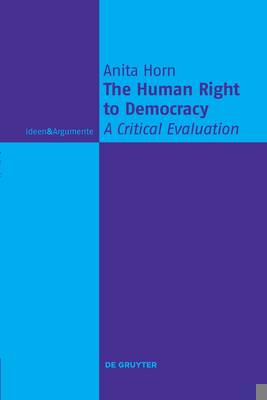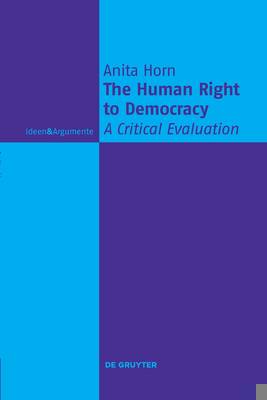
- Afhalen na 1 uur in een winkel met voorraad
- Gratis thuislevering in België vanaf € 30
- Ruim aanbod met 7 miljoen producten
- Afhalen na 1 uur in een winkel met voorraad
- Gratis thuislevering in België vanaf € 30
- Ruim aanbod met 7 miljoen producten
Zoeken
Omschrijving
The Human Right to Democracy is the first major study to offer a comprehensive and up-to-date account of the debate. It reconstructs the relevant positions in that debate, identifies the key points of disagreement, and proposes an understanding of the human right to democracy that might form the basis of a wide consensus. The book rejects the idea of a comprehensive right to democratic institutions, and instead argues for a minimal "human right to democracy" which is best understood as an individual's right to voice. The human right to voice is a right, enjoyed by any individual independently of his or her place of residence or nationality, to be heard and supported in cases of severe injustice that is tolerated or condoned by the political community or polity of which the individual is a member. By bringing together human rights discourse and democratic theory, as well as taking into account practical politics, this study broadens the scope of the debatefrom a sometimes overly-narrow focus. The book is of interest not only to political philosophers, but also to international lawyers, diplomats, representatives of civil society, human rights activists, and specialists in development economics.
Specificaties
Betrokkenen
- Auteur(s):
- Uitgeverij:
Inhoud
- Aantal bladzijden:
- 129
- Taal:
- Engels
- Reeks:
Eigenschappen
- Productcode (EAN):
- 9783110777383
- Verschijningsdatum:
- 31/01/2022
- Uitvoering:
- Paperback
- Formaat:
- Trade paperback (VS)
- Afmetingen:
- 156 mm x 234 mm
- Gewicht:
- 213 g

Alleen bij Standaard Boekhandel
+ 51 punten op je klantenkaart van Standaard Boekhandel
Beoordelingen
We publiceren alleen reviews die voldoen aan de voorwaarden voor reviews. Bekijk onze voorwaarden voor reviews.







